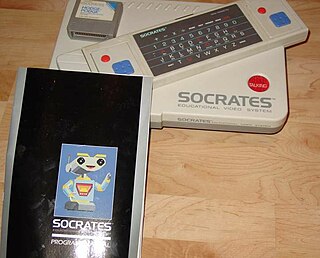 W
WAn educational video game is a video game that provides learning or training value to the player. Edutainment describes an intentional merger of video games and educational software into a single product. In the narrower sense used here, the term describes educational software which is primarily about entertainment, but tends to educate as well and sells itself partly under the educational umbrella. Normally software of this kind is not structured towards school curricula and does not involve educational advisors.
 W
W100 Classic Book Collection, known in North America as 100 Classic Books, is an e-book collection developed by Genius Sonority and published by Nintendo, which was released for the Nintendo DS handheld video game console. First released in Europe in December 2008, it was later released in Australia in January 2009, and in North America in June 2010. The game includes one hundred public domain works of literature.
 W
WAttentat 1942 is a Czech point-and-click adventure game, in which players take the role of Jindřich Jelínek's grandchild. Jelínek was arrested by the Gestapo shortly after the assassination of Reinhard Heydrich, ruler of the Nazi-occupied Czech lands and the leading architect of The Holocaust. The objective of the game is to establish what role he played in the attack, as well as the reason for his arrest. Throughout the investigation, players interview eyewitnesses, discover the family's back story and learn more about life in the Protectorate of Bohemia and Moravia.
 W
WBad News is a free-to-play online browser game in which players take the perspective of a fake news tycoon. It was released on February 19, 2018. The game is classified as a serious game and a newsgame aimed at improving media literacy and social impact. The game was produced by the Dutch media platform "DROG" in collaboration with University of Cambridge scientists. The game has been described by the media as a "fake news vaccine".
 W
WBioscopia: Where Science Conquers Evil is a 2001 educational adventure video game. It is a sister game to Physicus and Chemicus.
 W
WThe Blobjob is an educational adventure video game developed by Detonium Interactive, released by insurance company Sampo in November 1998 for Microsoft Windows.
 W
WBodyworks Voyager is an educational computer game and action shooter for MS-DOS released in 1994. It was developed by Mythos Software, Inc. and published by Software Marketing Corporation. The game teaches human anatomy, and involves a first-person shooter style component as well as quizzes on the human body.
 W
WBubsy 3D: Bubsy Visits the James Turrell Retrospective is a browser-based 3D platform video game developed by indie game developer Arcane Kids. Touted as an educational experience, it is a facetious spiritual successor to Bubsy 3D, an entry from the Bubsy series of video games, and was created as a tribute to the game for its 18th anniversary. The game follows Bubsy Bobcat as he travels through a nightmarish scenario upon visiting the real-life retrospective tribute of postmodern artist James Turrell. It was released in autumn 2013 - shortly after the domain name for Bubsy 3D's official website had expired. In 2017, in addition to making a downloadable version of the game available due to the fading support of the browser version of Unity, a remastered version of the game was made available with high-definition graphics and a new epilogue following Bubsy reminiscing over the events of the game and meeting his older self.
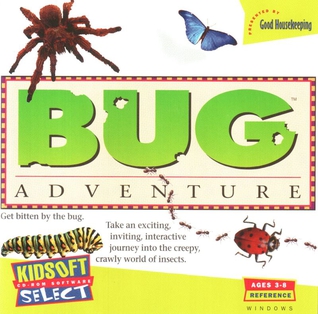 W
WBug Adventure is an educational video game about bugs by Knowledge Adventure. It was first released in 1994.
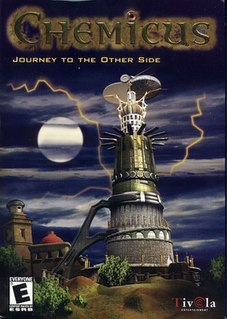 W
WChemicus: Journey to the Other Side is a 2001 educational adventure video game by Heureka-Klett as part of Tivola's "Quest for Knowledge" series. A sequel named Chemicus II: Die versunkene Stadt was released in 2002. The game was originally released in Germany.
 W
WConnections is a 1995 educational adventure video game.
 W
WCrosscountry is an educational simulation software series of programs for North American students. Many schools use these games as a fun way to teach their students about the states, provinces, territories, and cities. The game is published by Ingenuity Works, a Vancouver-based company originally known as Didatech Software. In most of the games, the player will drive an 18-wheeler to pick up and deliver commodities to the cities assigned, while making decisions about the best route, when to eat, sleep, fill up gas, etc.
 W
WDora the Explorer: Journey to the Purple Planet is a 2005 action-adventure video game based on the television series Dora the Explorer, developed by Monkey Bar Games and published by Global Star Software. The game was released for GameCube in North America on October 13, 2005, and later in PAL regions on December 16, 2005. The PlayStation 2 version was released on PAL regions on December 2, 2005, and later in North America on February 9, 2006. An Xbox version was planned, but was cancelled. Based on the show's episode, the game is about Dora and Boots who find some lost aliens from a Saturn-like planet known as the Purple Planet. However, to take them home, she and Boots are required to collect keys to open the space gate, leading to the Purple Planet. To fuel the rocket ship loaned to them, Dora and Boots need to collect 10 space gems in a level.
 W
WDS:Style is a series of educational software products for the Nintendo DS console. The series was created and published in Japan exclusively by Square Enix, a Japanese video game developer and publisher, and developed by both Square Enix and several other companies. It includes reference guides, travel guides for different countries or cities, and study guides for Japanese professional licensing and civil servant exams. The motto for the series is "The fun of games, the joy of learning". Despite the motto and being sold for a game console, the products actually include almost no gaming elements, instead functioning as reference guides and knowledge quizzes. The series was perceived when it launched as an attempt by Square Enix to break into a new market, that of "non-traditional gamers".. All the games that got a TV commercial were endorsed by Hitomi Kaikawa.
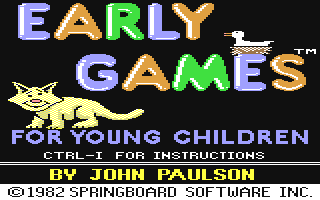 W
WEarly Games is a 1982 educational video game by Counterpoint Software and Springboard Software, designed by John Paulson. The game contain a series of educational mini-games targeted at preschoolers and designed to teach basic math, language, and logic skills. It was part of the Skill Builder series, along with Fraction Factory, Match Maker, and Piece of Cake.
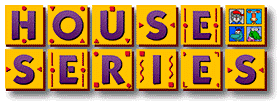 W
WEarly Learning House is a collection of four main educational video games and two compilations for the Windows and Macintosh platforms, developed by Theatrix Interactive, Inc. and published by Edmark software. Each different game focuses on a particular major learning category with selectable skill settings for preschooler, kindergarten and elementary learners. Millie's Math House (1992) on mathematics, Bailey's Book House (1993) on language, Sammy's Science House (1994) on science, and Trudy's Time and Place House (1995) on history and geography. A spin-off, Stanley's Sticker Stories (1996), sees players create animated storybooks with the series' characters. Millie & Bailey Preschool and Millie & Bailey Kindergarten each contain the combined activities from two of the four software products. In addition the programs can be configured by an adult mode to suit students with special needs. Most of the activities in every game have two modes, one to allow learners to explore and try it out for themselves and the other for learners to follow specific tasks set by the game characters. Learners also have the option to print pictures of creative activities and record sounds in phonics activities. Later the games were re-developed by Houghton Mifflin Harcourt Learning Technology and re-published by The Learning Company with newer graphics and additional activities.
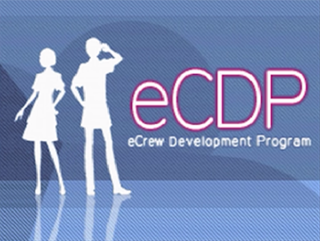 W
WeCrew Development Program, also known as the McDonald's Training Game, is a rare educational video game developed through a collaboration between Nintendo and McDonald's. Released for the Nintendo DS sometime in 2010 internally within the Japanese division of McDonald's, it was only ever distributed to the company's own restaurants domestically and never released to the public.
 W
WEducational entertainment is media designed to educate through entertainment and a term used as early as 1954 by Walt Disney. Most often it includes content intended to teach but has incidental entertainment value. It has been used by academia, corporations, governments, and other entities in various countries to disseminate information in classrooms and/or via television, radio, and other media to influence viewers' opinions and behaviors.
 W
WFar-Play is a software platform developed at the University of Alberta, for creating location-based, scavenger-hunt style games which use the GPS and web-connectivity features of a player's smartphone. According to the development team, "our long-term objective is to develop a general framework that supports the implementation of AARGs that are fun to play and also educational". It utilizes Layar, an augmented reality smartphone application, QR codes located at particular real-world sites, or a phone's web browser, to facilitate games which require players to be in close physical proximity to predefined "nodes". A node, referred to by the developers as a Virtual Point of Interest (vPOI), is a point in space defined by a set of map coordinates; fAR-Play uses the GPS function of a player's smartphone—or, for indoor games, which are not easily tracked by GPS satellites, specially-created QR codes—to confirm that they are adequately near a given node. Once a player is within a node's proximity, Layar's various augmented reality features can be utilized to display a range of extra content overlaid upon the physical play-space or launch another application for extra functionality.
 W
WGCompris is a software suite comprising educational entertainment software for children aged 2 to 10. GCompris was originally written in C and Python using the GTK+ widget toolkit, but a rewrite in C++ and QML using the Qt widget toolkit is since early 2014 in process. GCompris is free and open-source software subject to the requirements of the GNU General Public License version 3 and has been part of the GNU project.
 W
WGustavinho em o Enigma da Esfinge is a 1996 Brazilian educational adventure video game developed by 44 Bico Largo and created by Ale McHaddo. The plot revolves around the adventures of Gustavinho, who travels through Eurasia on a quest to return home, meeting historical figures like Julius Caesar and Cleopatra along the way.
 W
WHarpooned is a computer game by Australia-based Irish developer Conor O'Kane for Windows and Macintosh computers. It is a serious game which questions the Japanese government's claim that their whaling program is scientific in nature. The game's website describes Harpooned as a "Cetacean Research Simulator, where you play the role of a Japanese scientist performing research on whales around Antarctica".
 W
WInLiving is an educational game focusing on independent living. Aimed at young people aged 13–25, the game has been developed by Creative North Studios and Kirklees Neighbourhood Housing for use by housing organisations as a tool to deliver key information to prospective and current tenants. The game helps players understand the challenges they may face when moving into a property for the first time. The game was launched on 5 June 2008.
 W
WJabbertalky is a 1981 video game for the Apple II and TRS-80 published by Automated Simulations.
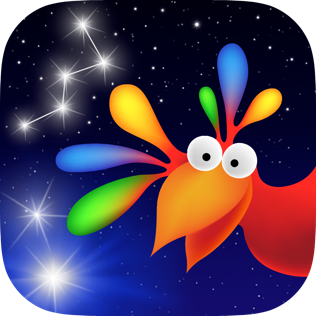 W
WKiwaka is an educational game for iOS, macOS and tvOS designed to teach children about astronomy. The app was developed by the Portuguese software company Landka in collaboration with scientific institutions such as the European Space Agency (ESA) and the European Southern Observatory (ESO).
 W
WMath Blaster! is a 1983 educational video game, and the first entry in the Math Blaster series within the Blaster Learning System. The game was developed by former educator Jan Davidson. It would be remade and re-released a number of times starting with Math Blaster Plus! and followed by New Math Blaster Plus. A complete makeover over was done for Math Blaster Episode I: In Search of Spot in 1993.
 W
WMeister Cody is an online training game with an integrated diagnostic screening test for children with dyscalculia and math weakness, the CODY Assessment. It was developed as a part of the CODY Project, a collaboration with psychologists and neuroscientists at the University of Münster, and technology experts at Kaasa health. The educational video game is used by parents, teachers and therapists as a diagnostic and therapeutic tool. The scientific research at the University of Münster drove the development of the computer-based training software.
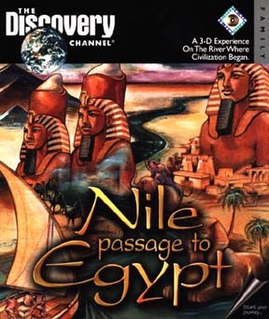 W
WNile: Passage to Egypt is a 1995 educational video game by the Discovery Channel.
 W
WNintendo Labo is a toys-to-life concept developed by Nintendo and released in April 2018. Labo consists of 2 parts, where one part is a game and one part is multiple sheets of cardboard. The games come as kits that include cardboard cut-outs and other materials that are to be assembled in combination with the Nintendo Switch console display and Joy-Con controllers to create a "Toy-Con" that can interact with the included game software and vice versa. Nintendo designed Labo as a way to teach principles of engineering, physics, and basic programming.
 W
WOpening Night is a 1995 education/simulation video game by MECC, and developed in cooperation with The Children's Theatre Company in Minneapolis. It is aimed at children aged 10 and up.
 W
WOtona no Onnaryoku Kentei is a Nintendo DS game by Konami that aims to teach the knowledge, skills and manners to be an "upstanding woman."
 W
WA Passion for Art: Renoir, Cezanne, Matisse, and Dr. Barnes is a 1995 interactive CD-ROM by Corbis.
 W
WPlay with the Teletubbies is an educational video game developed by Asylum Entertainment and published by BBC Multimedia and Knowledge Adventure. Based on the British children's television series Teletubbies, it was released for Microsoft Windows in 1998 and PlayStation in 2000.
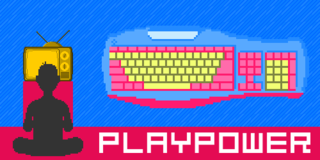 W
WPLAYPOWER is a 2008-started non-profit organization designed to create free educational computer software for low income families in India and other developing countries. After 2012 the project was reformed as Playpower Labs, LLC, which focuses now on educational games for mobile platforms.
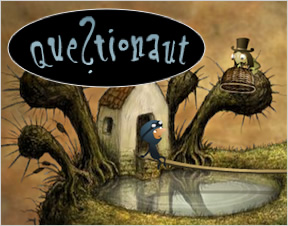 W
WQuestionaut is a short educational video game developed by Amanita Design for the BBC. It's a point-and-click adventure game meant for English speaking children of school age. It is supposed to exercise their knowledge in English, Mathematics and Natural science.
 W
WThe Re-Mission games for young cancer patients were conceived by Pam Omidyar and designed based research by the nonprofit HopeLab Foundation, with direct input from young cancer patients and oncology doctors and nurses, and game developer Realtime Associates, among others. The games engage young cancer patients through entertaining game play while impacting specific psychological and behavioral outcomes associated with successful cancer treatment. HopeLab has made Re-Mission games available at no charge to young people with cancer and their families, as well as oncology healthcare workers and institutions around the world.
 W
WRibbon Hero 2: Clippy's Second Chance, or just Ribbon Hero 2, is a video game developed by Microsoft Office Labs. The game is available as a free download and serves to educate users of Microsoft Word, Excel, PowerPoint and OneNote in Microsoft Office 2007 and 2010 how to use the ribbon interface. It is a sequel to Ribbon Hero.
 W
WSPARX is a free online computer game intended to help young people with mild to moderate depression, stress or anxiety. Through the game, this e-therapy will teach them how to resolve their issues on their own, according to a talking psychotherapeutic approach called cognitive behavioural therapy. Before taking part in this game, a personality test is required to determine if SPARX will be suited and helpful for the future user.
 W
WTooth Invaders is a video game released by Commodore International for its VIC-20 home computer in 1981 and later for the C64 in 1982. It was developed in association with Camelot Marketing Group in order to positively reinforce the pros of brushing, flossing, and healthy dental care. Seen as a fun way to teach children the importance of dental care, players fight as "Plaqueman" to fight plaque using a toothbrush and dental floss. It was also made in association with the American Dental Association, released during National Dental Month, and supported by dentists.
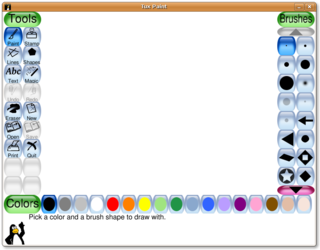 W
WTux Paint is a raster graphics editor geared towards young children. The project was started in 2002 by Bill Kendrick who continues to maintain and improve it, with help from numerous volunteers. Tux Paint is seen by many as a free software alternative to Kid Pix, a similar proprietary educational software product.
 W
WTux, of Math Command is an open source arcade-style video game for learning arithmetic, initially created for Linux.
 W
WUrban Jungle is a freeware educational driving game. The game features a virtual version of the city centre of the Croatian city of Rijeka. The player drives a car through the city, performing missions for money while taking care not to break traffic rules; a later update also added a driving school simulation.
 W
WWalden, a game is a first-person open world video game developed by Tracy Fullerton and the USC Game Innovation Lab for Microsoft Windows, Mac OS X and PlayStation 4. Released on itch.io on July 4, 2017 for PC/Mac and PlayStation 4 on May 15, 2018, the game translates the experience of naturalist and author Henry David Thoreau's stay at Walden Pond in 1845–47 to a video game. The game was announced for PlayStation 4 at the 2017 PlayStation Experience.
 W
WWhere in North Dakota Is Carmen Sandiego? is a 1989 edutainment video game. It is the fourth game in the Carmen Sandiego video game series after World (1985), U.S.A. (1986), and Europe (1988). Having observed the popularity of the Carmen Sandiego franchise in the education of school children, educators were inspired to develop a North Dakota version to teach North Dakotans about their state's history and geography.
 W
WWorld of Guns: Gun Disassembly is a cross-genre simulation and puzzle video game that allows the player to operate and disassemble various firearms, as well as other mechanisms like automobiles, AFVs and aircraft. The game is the latest iteration of Noble Empire's Disassembly series, first released in 2010 on iOS, expanding on the feature set and library of interactive models.
 W
WXanagrams is an educational game that is a cross between a crossword puzzle and Scrabble. It was given away for free with the Amstrad CPC 464 and was a popular game. There are 3 difficulty level to the game, from middle school aged to adults. A game can consist of 1-5 words and the player is given a jumble of letters to sort out to form the correct words.